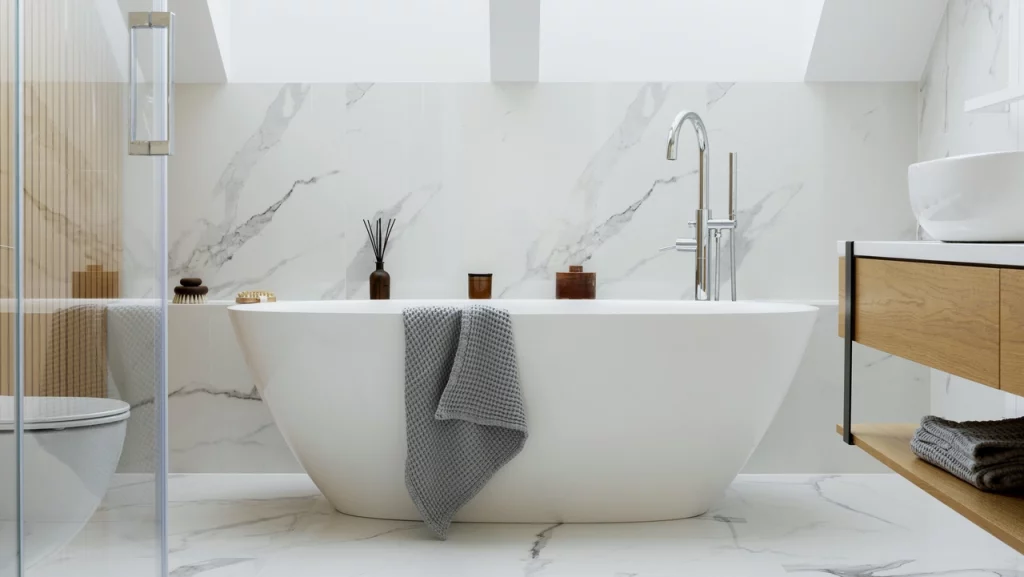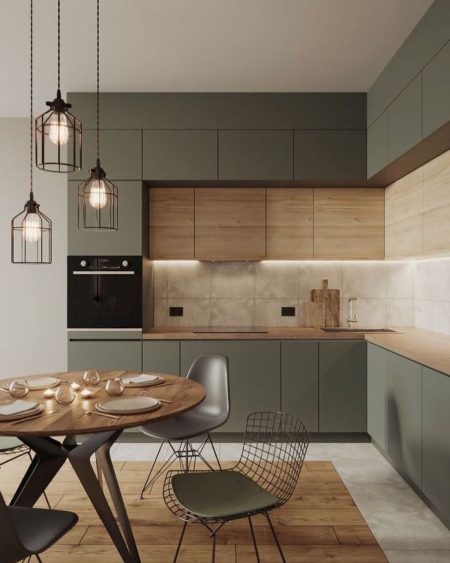Do solar panels increase home value?
Interest in solar has been growing thanks to the Inflation Reduction Act, which provides homeowners with a 30% green tax credit for solar energy installations.
A rooftop-solar system that meets a typical household’s energy needs costs $15,300 on average including installation, according to proelectrification nonprofit Rewiring America. That translates to about a $4,600 credit.
Under the right conditions, adding solar can also significantly reduce your monthly utility costs. Plus, data also suggests solar panels increase a home’s value somewhat when it comes time to sell.
According to a 2019 Zillow study, homes with solar systems sold for 4.1% more on average than comparable homes without solar power. The sale premium varied by market, from 5.4% in New York to just 2.7% in Riverside, Calif., but was present in every market Zillow analyzed.
Before moving forward, however, make sure your home is a good fit for solar. One tool is Google Project Sunroof, which shows how many hours of usable sunlight your house receives each year and estimates 20-year energy savings from adding solar.
Also keep in mind that the full tax credit is only available until 2032. The credit slides to 26% for solar systems installed in 2033, drops to 22% for systems installed in 2034 and then expires.
Does a new roof increase home value?
Replacing a worn-out roof you will quite literally keep a roof over your head—and likely future owners’ since a new roof typically lasts 20 to 30 years. However, you likely won’t get every dollar back.
The median spend on a new roof is $8,000, according to the Census Bureau. Costs depend a lot on material and size, and so does return. For example, a roof with fresh asphalt shingles costs around $30,000 on average and you’ll get back about 60% of that, according to Remodeling magazine’s 2022 cost vs. value report. Meanwhile, a metal-roof replacement costs about $50,000 and will return roughly 50%.
Leaks are the most obvious sign that your roof needs to be repaired or replaced, Steckel says. Other clues include cracked or warped shingles, dark streaks, a sagging roofline or a sudden increase in your energy bill. If you suspect your roof needs work, get a professional roof inspection, which runs around $200.
If it’s time for a replacement, one way to cut costs is to see if other homeowners in your neighborhood are also ready for a new roof. Mobilizing as a group may help you negotiate a lower rate, says Steckel.
Does a new kitchen increase home value?
A new kitchen can make your home more enjoyable—and more attractive in the eyes of a home buyer.
Like most home improvements, the effect on sale price depends on where you live, the value of your home and how extensive a remodel you do. For example, a full kitchen remodel for a $200,000 house in Atlanta, Ga., raises its value by 6% on average, according to house buying company Opendoor’s home improvement calculator. In Tampa, Fla., the value increases by 8.45% on average.
A full kitchen remodel runs roughly $150 a square foot, HomeAdvisor reports, with some upscale kitchen remodels climbing into the six figures.
To curb expenses, Mallory Micetich, home expert at Angi (formerly Angie’s List), recommends being selective about where you spring for higher-quality materials.
“If you love having granite countertops but don’t care about the material of your backsplash, you can adjust your budget accordingly,” says Micetich.
You can also take steps to keep costs down when shopping for kitchen appliances. Many bricks-and-mortar retailers offer discounts on floor models. Have your heart set on a new product? Enter the model’s information into Google Shopping to compare prices from different retailers. And keep in mind, some utility providers offer rebates for certain energy-efficient appliances.
Does a new bathroom increase home value?
A bathroom remodel yields the biggest return of any home improvement, according to Zillow data. Even minor cosmetic changes provide a $1.71 increase in home value for every $1 spent.
“Bathrooms are one of the few rooms we spend a large amount of time in and everyone in your household uses it,” making a bathroom renovation a good investment, Micetich says.
Looking to do a full bathroom renovation? The average bathroom remodel costs about $11,000, HomeAdvisor finds. Fortunately, says Courtney Mason, general manager at home improvement website The Spruce, there are ways homeowners can trim expenses, starting with your selection of materials.
“Decorative and detailed tile can come with a high price tag, especially if you want to use it for your whole bathroom,” says Mason. Instead, she suggests only using expensive tile for a decorative border or feature wall. For the rest consider subway tile, which usually costs less than $3 a square foot. “Classic subway tile is clean, simple and has a timeless appeal.”
Do energy-efficient windows increase home value?
Installing energy-efficient windows provides a decent return on investment when you sell and have the added benefits of reducing your energy bill.
Energy-efficient windows can cost anywhere from $120 to $1,200 per window, according to Angi. Hiring a contractor to install them adds an extra $200 to $800 per window. Depending on the type of window you install, the return should average in the 60% to 70% range.
Under the Inflation Reduction Act, there is also an annual tax credit of up to $600 for energy-efficient windows (plus $250 per door, up to $500). That is double the previous $300 lifetime limit for energy-efficient windows. This credit expires on Jan. 1, 2033.
Got a money question? Let Buy Side find the answer. Email [email protected].
Include your full name and location, and we may publish your response.
Read the full article here










